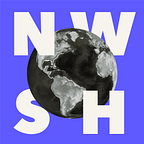
Welcome to the podcast version of New World Same Humans, a weekly newsletter on trends, technology, and society by David Mattin.
If you’re listening to this and you haven’t yet subscribed, then join 9,000+ curious souls on a journey to build a better shared future:
This week’s instalment is about power.
More specifically, it’s about the idea that ‘algorithms will soon know us better than we know ourselves’, and what that means for the future of the societies we live in.
The historian and techno-futurist Yuval Harari says that in a world of all-knowing algorithms, liberal democracy will no longer make sense. People will ask: ‘why should I vote, when The Algorithm can vote on my behalf?’
Harari thinks that challenge may prove fatal for democracy. But I think there’s an answer. To learn more, press play!
If you prefer to read this week’s instalment, go here for the the text version of New World Same Humans #23.
Links in this week’s instalment
1. The New York Times article about Robert Julian-Borchak Williams, a 42-year-old African-American who, says the paper, is the first person to be arrested for a crime he didn’t commit after a being misidentified by a facial recognition algorithm.
2. A new paper from researchers at Harrisburg University, who claim to have created a facial recognition algorithm that could ‘predict if someone is a criminal based solely on a picture of their face.’
3. TikTok’s limited explanation of its For You algorithm, which helps shape what 800 million active users get to see on the platform.
New World Leviathan
The iconic illustration that accompanied Thomas Hobbes’s Leviathan is one of my favourite ever images. It so perfectly captures the powerful, frightening idea that stands at the heart of the book: that sovereign power comes into being when a multitude of people hand their natural power over themselves to a single individual.

Just like Hobbes’s Leviathan, New World Same Humans is a single entity made up of many people. Luckily, that’s where the similarity ends; no sovereign power is involved! Instead, we’re building a decentralised community where everyone gets to represent themselves, and everyone gets to have a say.
As promised, the Slack group that makes that promise a reality is on the way!
In the meantime, we can make our community more powerful in one important way: by growing it! So if you found today’s instalment valuable, please forward this email to one person – a friend, family member or colleague – who’d also enjoy it. Or hit the share button below and let people know why you enjoy NWSH.
The more great people who join our community, the better for all of us!
Until next week, thanks for listening,
David.










